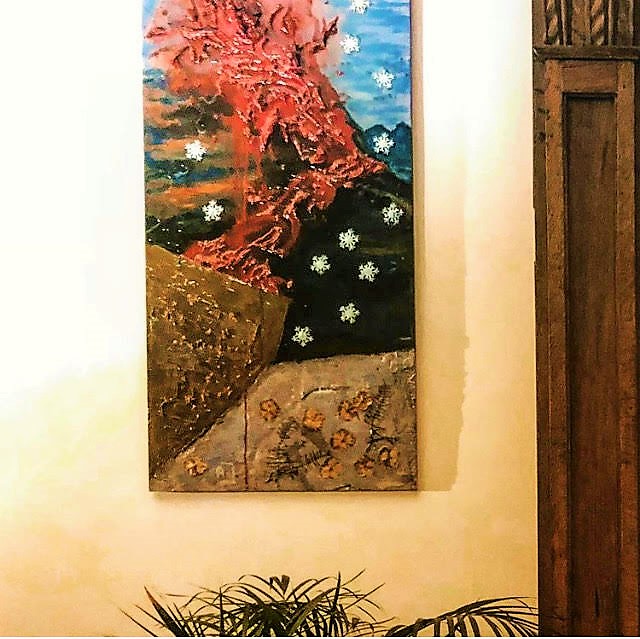Lava Flow
Human influence on earth's climate is ultimately only small when a volcano starts spewing.
In the past, civilizations has been destroyed by climate change, epidemics, wars and population migrations.
Menselijke invloed op het klimaat van de aarde is uiteindelijk maar nietig als een vulkaan gaat spuwen.
In het verleden zijn beschavingen na verloop van tijd weer ten onder gegaan door klimaatverandering, epidemieën, oorlogen en volksmigraties.

In 79 AD, one of the greatest natural disasters of ancient times occurred. The top of the volcanic Mount Vesuvius exploded with a devastating bang, and in just under twenty-four hours, the cities of Pompeii and Herculaneum were buried under a thick layer of ash, pumice, mud and lava.
At least 70 underwater volcanoes in the Tyrrhenian Sea and the Strait of Sicily could trigger a tremendous tsunami when they should errupt.
Japan is still recovering from the massive earthquake and tsunami in 2011, caused by the sudden horizontal and vertical thrusting of the Pacific Plate.
Last January, the active volcano Semeru erupted again on the Indonesian island of Java, spewing a plume of ash and steam for miles into the air. Mount Etna of Italy has also been experiencing a busy season this year.
And this week, red-hot lava from the Cumbre Vieja crater is plaguing the Canary Island of La Palma. On its way to the Atlantic Ocean, the lava destroyed roads, buildings and crops.
Experts previously warned of possible explosions and release of toxic gases if the lava reached the sea. Thousands of people had therefore been evacuated.